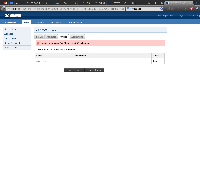-
Type:
Bug
-
Resolution: Fixed
-
Priority:
Medium
-
Affects Version/s: 2.7, 2.7.2
-
Component/s: Directory - LDAP, User Management
-
None
-
Environment:
Standalone Application
Apache Tomcat/7.0.40
Ubuntu Server 12.04 LTS
Java: 1.7.0_45
First of all: We have installed the version 2.7.0. I can't find this one in your "Affects Version" list.
Most of the description you can find here in this answer: https://answers.atlassian.com/questions/296167/crowd-removing-group-from-user-with-in-username-results-in-error?page=1
We are using Crowd for custom applications. Underlying directory is Open-LDAP running on the same server as the crowd installation.
My last post in the answer identifies the main problem:
I tested with activated caching function for LDAP-Directory for a user with already existing group.
1. Removed Group from user
2. Error occurred but group was removed in the crowd web console
3. Looked direcly into LDAP. Group was still attached to the user!
4. Clicked on synchronisation
5. On crowd web console: Group was readded to user by synchronisation
So the problem seems to be with the LDAP connector.
It is customer requirement for this username format and very important that crowd supports this. Our customer bought the biggest license and wants to migrate from another system to crowd.
With this bug we have a showstopper!
